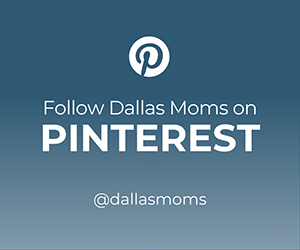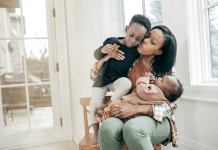 Last July, my husband, baby, and I landed in Dallas after a weekend with my extended family in New York. We started our typical arrival routine of baths and showers, light unpacking, and my husband going on a takeout run. I scrolled my phone and felt my heart drop and my eyes get hot and wet. I texted my husband, “Robin Williams died. He committed suicide.”
Last July, my husband, baby, and I landed in Dallas after a weekend with my extended family in New York. We started our typical arrival routine of baths and showers, light unpacking, and my husband going on a takeout run. I scrolled my phone and felt my heart drop and my eyes get hot and wet. I texted my husband, “Robin Williams died. He committed suicide.”
He knew what it meant. Not that one of our funniest and brightest people had left the earth, which is hard news as it is, but that I was triggered into thinking of a big, intense, and fragile life as the daughter of someone with mental illness. The next few days online were an emotional blur. I was ducking slews of articles about a secret bipolar disorder, “sources” sharing how he showed such few signs of depression lately, and conversations of how we should de-stigmatize mental illness. People at work referred to the weather or old friends as “totally bipolar.”
My adult life is normal.
I’m a wife and mom with the same day-to-day life as most people I know. Families who encounter chronic or terminal illness with a loved one know the feeling of trying to act normal to an outside world that may not know or understand how things are falling apart behind closed doors.
For my family, this is what it was like through my father’s most intense battles understanding his bipolar disorder. For the most part, I’ve come to understand and accept his disease until something like an event in the news reminds me that my life is different because of it.
Fifteen years ago, my dad’s struggle with mental health became present in our family.
I was a young teenager with a younger sister in a close-knit community of PTA-involved, churchgoing, nuclear families. In our case, diagnosing and finding a successful treatment plan for my dad did not begin with him waking up one morning and realizing he was bipolar. The road of acceptance, trial and error of doctors, diagnoses, and medications collectively created a decade of confusion for him and my family.
This included suicide watch, behavior that was sometimes hurtful and humiliating to us, and long gaps in our relationship as I grew up and realized I needed boundaries for my own safety and peace of mind.
I’ve unsuccessfully tried to parent my parent, I’ve grieved the loss of a parent who is still alive, and I’ve thought about future milestones in my life and wondered what my family would look like when the time came. Our family structure always lacked certainty. I lived for a long time feeling the most anxious when things were in a good place. To me, feeling settled was so rare that it could only mean the bottom was about to fall out.
Today we’re all thankful to be in a place where new advances in mental health care and other factors have helped my dad find good medication and more connection and steadiness in his life. Seeing him take more control of his life helped us foster a new relationship, right in time as I brought his first grandchild home. I’m also thankful today for the full experience of life as his daughter. And that through his disease, my relationship with my dad has stretched me and educated me in ways that I believe help me as a parent.
My family’s experience has taught me so much.
For one, I know that one of the best things a child can feel is stability. With a manic father, life was big but not necessarily steady. During our hardest times, our family took impromptu vacations and came home to big purchases. With a sick father and my mom naturally preoccupied by the state of his health as well, I didn’t always have someone to pick me up at school, to be at things they said they were going to attend, or to drop what they were doing and listen to me when I needed it. I’m not able to be at home with my daughter every day or cater to her every whim, but I do want her to trust me and know I make every effort to be consistently there for her. I know from chapters in my life without it, that it’s an irreplaceable feeling.
I also know I can be a better calming and stable influence in my family’s life if I am taking care of myself. Going to the gym, eating well, and working with a therapist benefit more than just my own peace of mind. Many people, including my father, struggle with disease that is genetically influenced, and I take efforts to help myself avoid these issues and have a healthy body and mind that can fight through them. Knowing what a family goes through when a loved one is sick is a reminder that my own health is a benefit to my daughter. And sometimes saying no to extra activities to focus on my wellbeing is a gift to her.
It’s about the present, not the future.
The biggest thing I learned is the freedom that comes from letting go of expectation and making an effort to live in the moment with the people you have. My dad, through his illness, has tested me more than anything else I’ve experienced in life. And my dad has been the one to teach me that things, relationships, and our own lives as we see them are not guaranteed. I spent time on my journey avoiding him and being angry that he couldn’t just be normal for me. Hugging my dad still doesn’t come completely naturally to me, but the feelings of letting go of hurt, being open to new possibilities, and knowing, despite what the future might bring, we have this moment together are always greater than if I left them off the table.
Throughout our lives, our relationship is likely to ebb and flow through the cycles he battles. The grounding and satisfying moments we share in between are what I will always have if I allow myself to take them in. This is how I’ve approached raising my daughter as well. Life is uncertain for all of us, and better when we choose to live it on its terms instead of demanding ours.
National Mental Health Awareness Month
Mental illness is not a choice for the patient or their loved ones. Like many other diseases, it shows up unannounced and turns families upside down as they try to find their new normal. If I could share anything during National Mental Health Awareness Month, it’s that families need as much support as the individual going through medical or personal problems.
The more we accept these illnesses for what they are, it frees families from stigma, enables sharing, and keeps their communities from shying away because they don’t want to intrude.
My life through my dad’s illness was different, but like any challenge in life, it only helped me grow and brought my family closer together. I’ve made tough decisions and tough reconciliations, and I learned how to reach out to my community and be open when I need help. The most valuable thing I learned is other people’s ability to love and be there for you can change, but your own two feet are something you can always stand on. I wouldn’t wish any moment of the more tumultuous times of my life on my daughter, but I am thankful that they’ve made me a stronger mother for her.














Thank you for sharing! Mental illness is pervasive in my mom’s family and I know the more we talk about the issue and bring awareness to it, the more likely our loved ones will have access to medicines and resources to help them thrive.
Thank you, Jenna! I have felt that in my own life from other people sharing and hope that is the case with today’s post as well.
Thank you for your thoughtful article. I feel so encouraged by your observations and perspective. I had have never taken the time to realize that all of my uncertain and unstable childhood, filled with pain and embarrassment, have had some positive impact on my values, perceptions, and my parenting. I also just started evaluating my lack of self-care as a result of your article, and started working out again. Thanks for the motivation!
I am really happy, Emily, that you are finding positive in your life and also taking care of yourself! We get an opportunity for a fresh start every day.